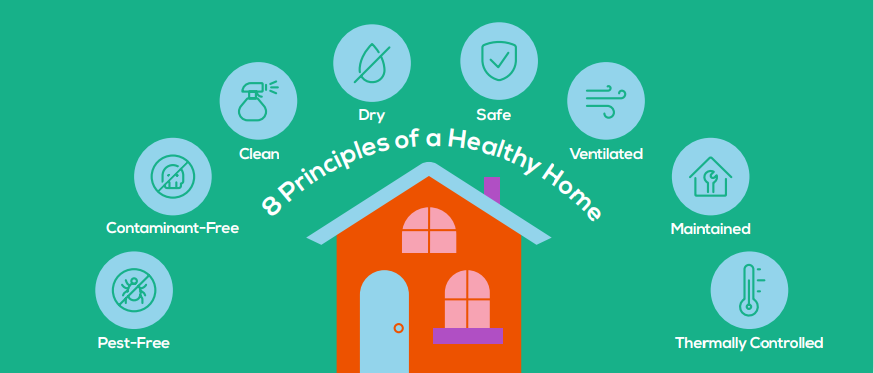Healthy Homes = Healthy Families
Southwest Nebraska Public Health Department (SWNPHD) would like to take time to highlight how the conditions in our homes affect our health and to share steps residents can take to make their homes safer and healthier. Where we live plays a major role in our overall well-being.

“A healthy home is free from hazards like mold, pests, and poor ventilation,” said Diana Garcia, Program Manager at SWNPHD. “Even small changes can help protect families—especially young children, the elderly, and those with chronic health conditions.”

SWNPHD recommends the following simple actions residents can take this month to ensure a healthy home and family:
- Check for moisture and leaks under sinks, in basements, and around windows to prevent mold growth.
- Install and test smoke detectors and carbon monoxide alarms monthly.
- Ventilate bathrooms and kitchens to reduce humidity and improve indoor air quality.
- Keep floors and entryways clean to reduce dust, allergens, and slips or trips.
- Safely store cleaning products and medications out of reach of children.
- Use non-toxic pest control methods and seal cracks to prevent infestations.
- Test your home for radon, a naturally occurring gas that can cause lung cancer.
- Check for lead-based paint in homes built before 1978 and avoid sanding or scraping painted surfaces without proper precautions




